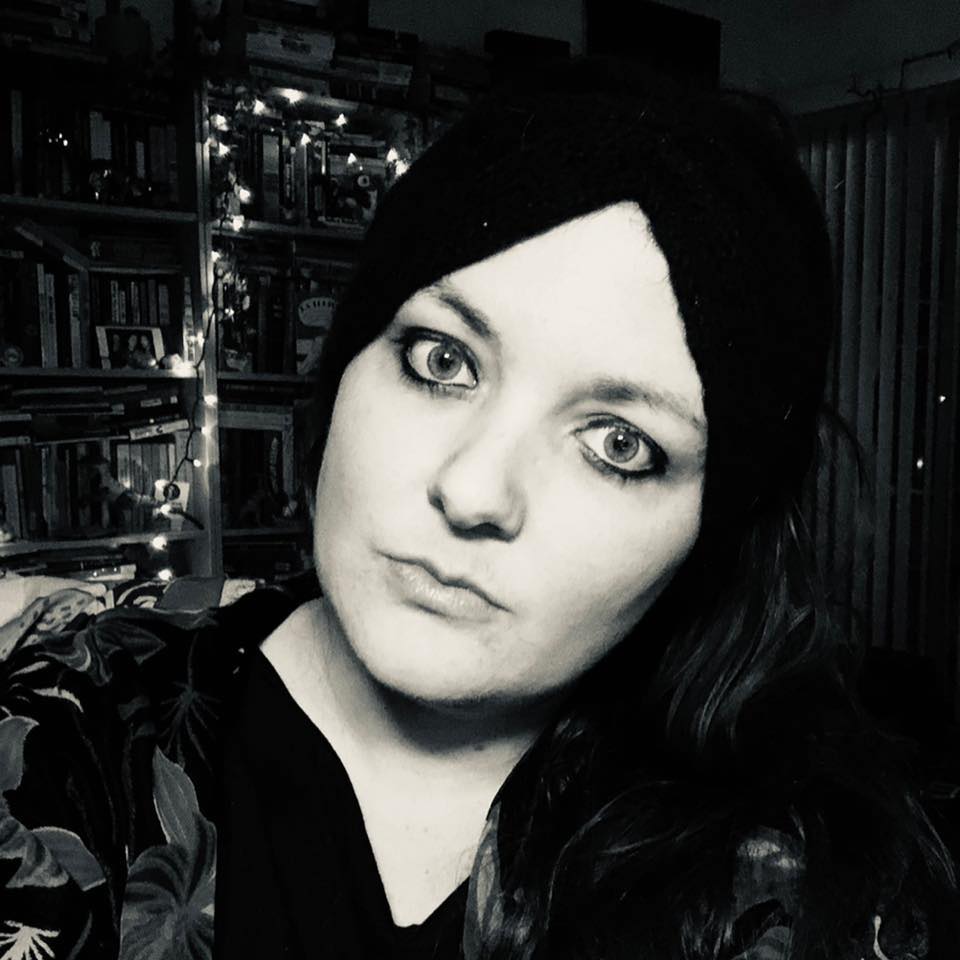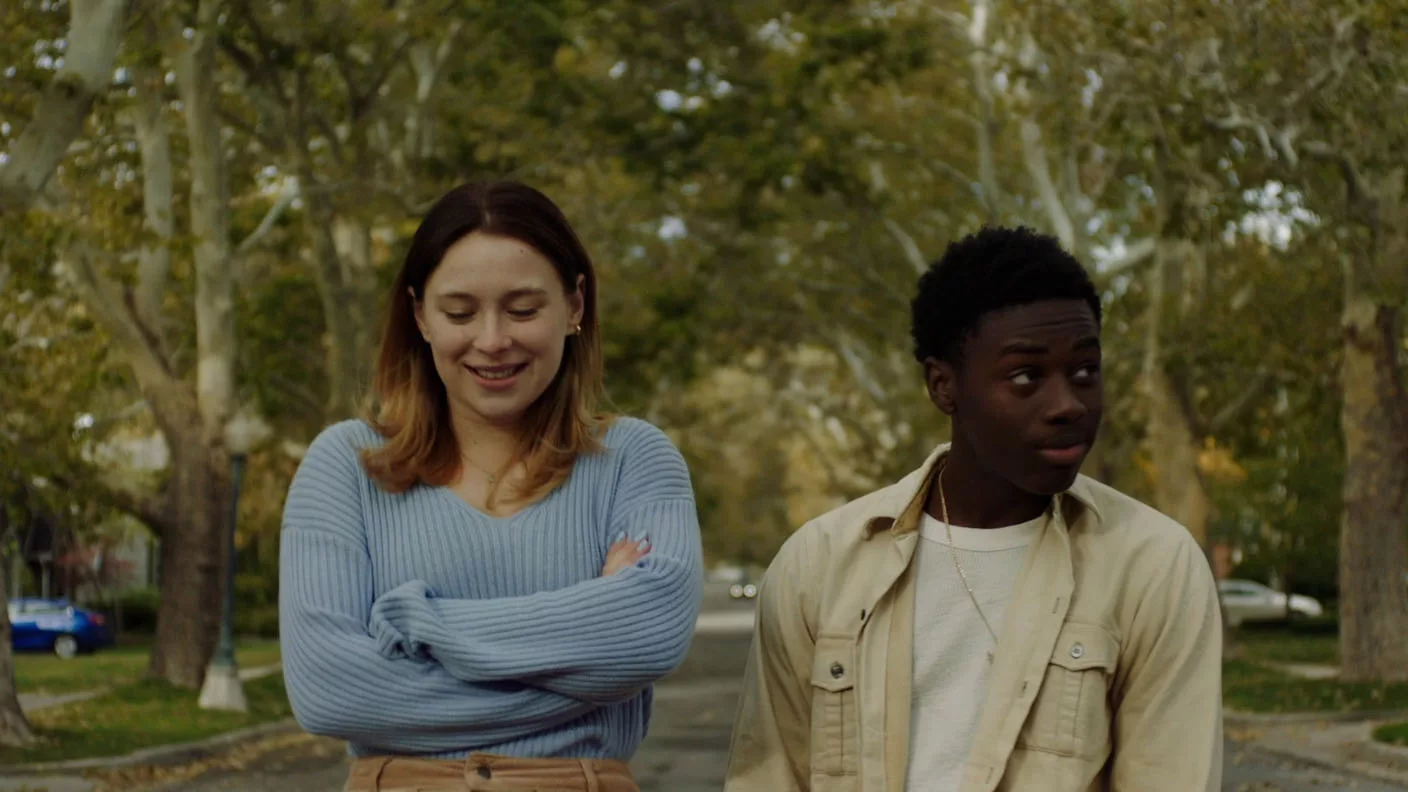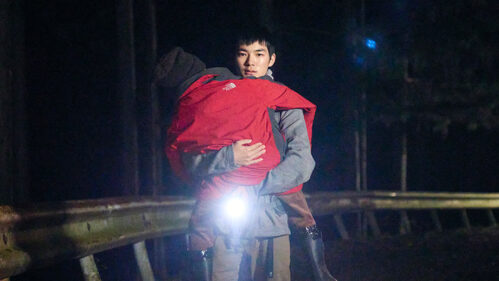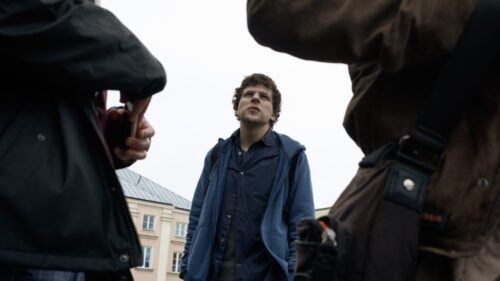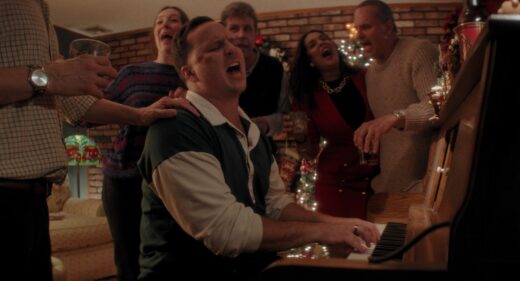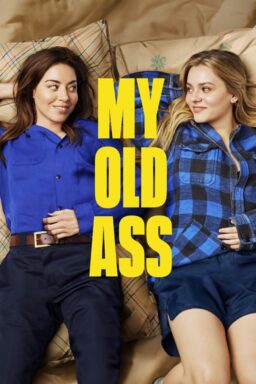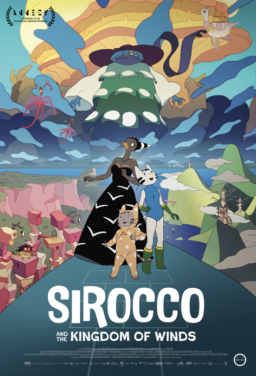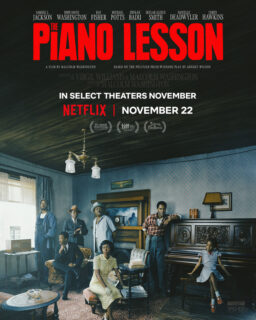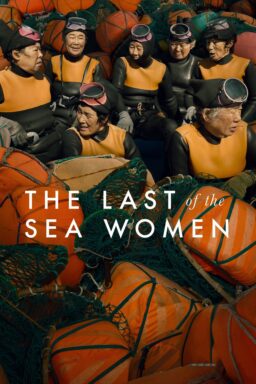Writer-director Hannah Peterson cut her filmmaking teeth on the sets of Sean Baker and Chloé Zhao, learning firsthand how to hone her cinematic voice and bring a fresh perspective to the screen. This can be seen in her radically empathetic debut feature film "The Graduates," about the aftermath of a school shooting, which premiered at the Metrograph in New York City last week and will continue to screen in art house theaters across the country over the next few weeks.
The drama premiered in 2023 at the Tribeca Film Festival, where it won an award for its delicate cinematography, and where it was picked up by the new distribution arm of Caryn Colman's The Future of Film is Female. The film stars Mina Sundwall as a high school senior named Genevieve still grieving the loss of her boyfriend Tyler in a mass shooting at their school a year earlier. In the wake of this grief Genevieve is in a state of stasis about her future. The same can be said for Tyler's father John (John Cho), who has remained at the school as a teacher and basketball coach, unable to let go of the last place he saw his son. The film's cast is rounded out by a tender performance from Alex R. Hibbert, best known for his role in Barry Jenkins' "Moonlight," as Tyler's best friend Ben, who is struggling with his own survivor's guilt. These three lost souls connect on the eve of graduation, as they do their best to move forward in an impossible situation.
Peterson holds a BA in Screen Studies from the New School and an MFA from CalArts. In 2018 she was named by Filmmaker Magazine as one of the 25 New Faces of Independent Film, a list that included Charlotte Wells, Helena Howard, Mariama Diallo, Sky Hopinka, Channing Godfrey Peoples, and Jomo Fray. She directed all nine episodes of the Emmy nominated series "Shook," the Disney Channel's first original scripted series made exclusively for YouTube. Her short film "East of the River" premiered at the Tribeca Film Festival in 2019. She then received a production fund from the fifth annual Through Her Lens: The Tribeca Chanel Women's Filmmaker Program for her short film "Champ." Along with Tribeca, her shorts have screened at the Sundance Film Festival, Slamdance, REDCAT, and MoMA.
For this month's Female Filmmakers in Focus column, RogerEbert.com spoke to Peterson over Zoom about exploring the lingering trauma in the wave of school shootings, casting actors who can also be advocates, capturing the fragility of life in a cinematic grammar, and finding a community through the Future of Film is Female.
The film speaks to this really traumatic time for high schoolers that we're living through. What drew you to exploring this trauma through film?
I started writing the film in 2018. That year there was a lot of media coverage around school shootings that were happening. My original way into the film was wanting to tell a more contemporary story of what it means to come of age in the American public school systems. My shorts had explored that previously, and I wanted to do that on a bigger scale. I started to talk to high schoolers, mostly juniors and seniors, about what their experience was like. What were the highs and lows of high school? The idea of school safety is something that came up in every single conversation I had, whether students had experienced gun violence in their schools or not, and it's something that spoke to me on a lot of levels.
When I was in high school, there was a series of coordinated shootings in Washington, DC where I lived. We started to do active shooter drills. We learned to run in zigzag lines. I watched my school harden. We had resource guards and metal detectors installed. I remember that sense of security of school really being punctured. If I were going to tell a story of what it is like to go to public high school in America today, it was a conversation that I had to have. While I was doing research and started to dive deeper into students who had experienced that in their school, there was a shooting nearby where I went to grad school while I was writing the film. It was one that didn't get a ton of media coverage. The school closed and opened within weeks of itself. And this idea that students would just continue to go back to this site of violence and trauma – for sometimes years before they graduated – was a really striking image to me, and that really put it in my head that I wanted to talk about the aftermath and how do students cope once the media coverage ends? This becomes normalized in our society. So that was really the entry point and genesis of the film for me.
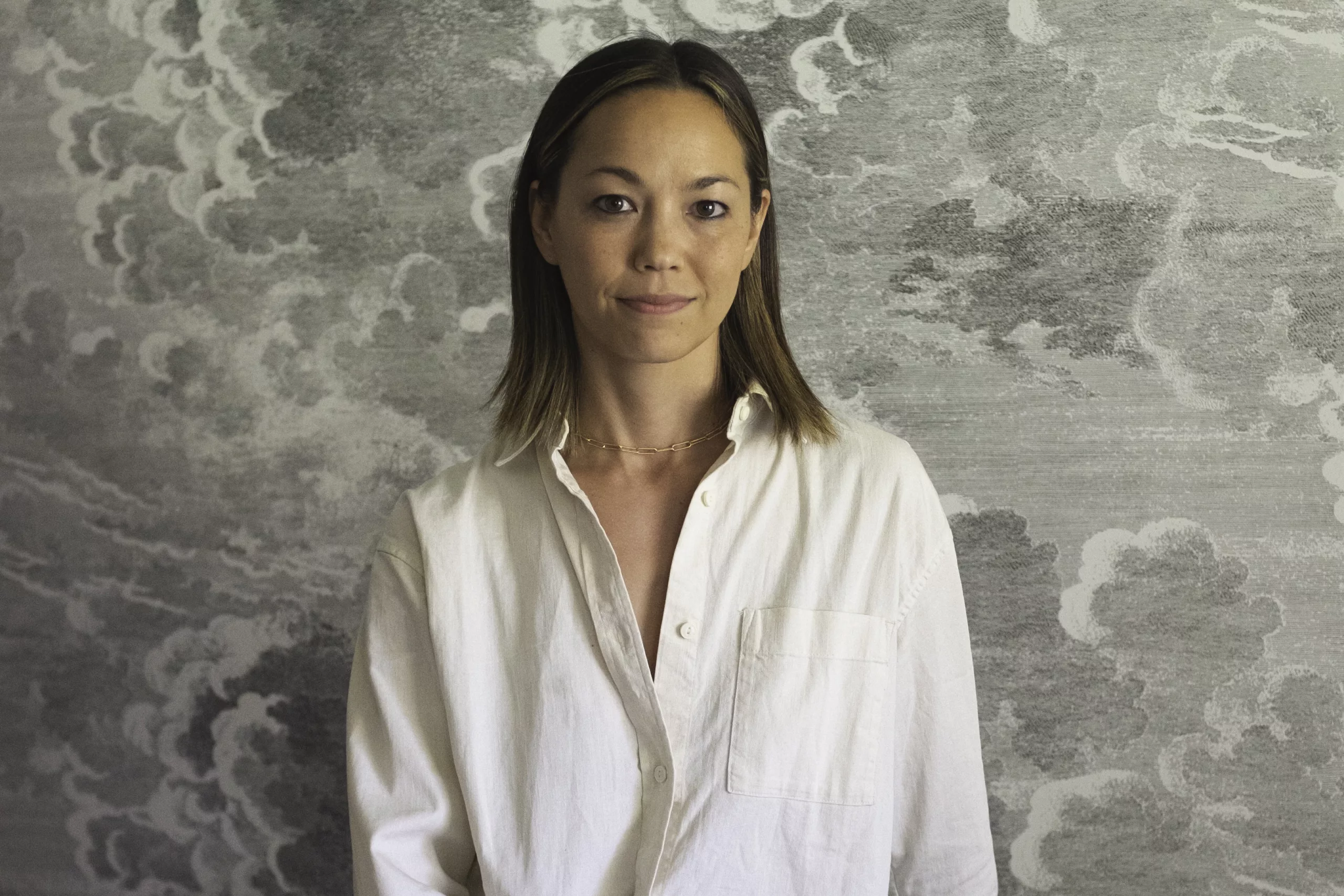
You have John Cho playing this teacher who has both a personal connection as a teacher, but also, without spoiling it, a deeper personal connection to the events. When did you know you wanted to have that adult perspective as well?
Well, I think when I started to talk to people, it was really clear to me that there was a tapestry of individuals in the community, and the reverberations of violence goes so much farther than even the students involved. I knew it was important to have an administration character. There's the counselor Vicki (Kelly O'Sullivan), but I also felt like it was really important to include a parent character, because in public schools, oftentimes parents are part of the administration or part of the faculty or sports faculty, and so that was important to me. To really tell the story, it was important to zero in on people that were connected to a single individual. So it made sense to have someone who he loved as a friend, as a girlfriend, and also as a parent.
At what point in the project did John Cho become involved?
John Cho came involved, you know, pretty close to production. To be honest, this film itself came together really, really fast. I wrote it forever, but then once we ended up finding the money, as you know, time can go really fast, like lightning in a bottle. I originally thought of the father as someone who I could maybe locally cast wherever we were shooting. Then it became apparent to me that while it was a supporting role, it was really important, because this was someone who was representative of a parent figure. We only really focus on these three characters in the film, not everybody in the community. So it became that a lot of weight is held by this character. And I really wanted someone who could navigate that in a really powerful way and in a subtle way. That's when I knew I wanted to have an actor who was really experienced. John came to mind, and that's how that happened.
He's been taking several dad roles lately.
He is a dad in real life and I feel like that was a big reason why he connected to the script, and his level of connection to the character in the script was really what sold me on casting him.
In terms of the kids playing the teenagers, obviously, you have Alex Hibbert from "Moonlight." Then you have Mina Sundwall, who is a real discovery in this film. What was your casting process and what were you looking for them to bring to the roles?
I really wanted a discovery cast. I wanted this to feel like it fell from the sky, like it could be in your backyard, this high school. I wanted actors who were really close in age to the characters. We did a national casting call virtually. This was back in COVID days. They both read for the role. I was immediately drawn to both of them for really different reasons. Alex was just 18 at the time that we filmed, so he really was the character's age. Coming into the audition, he had a level of process to how he was interpreting the character that was really interesting to me and very different from how it was written. Mina came into it with a really personal connection to the script and story. One of her closest friends and roommates at the time was a Parkland survivor. So she understood the context of the character in a way that I think no one else possibly could. Because of the context of the film, it was also really important to me to have people who could be spokespeople for this film in a lot of ways. And both of them really took on the responsibility of the film and the characters in that way. Then when I saw them in the chemistry read, I knew it had to be the two of them.
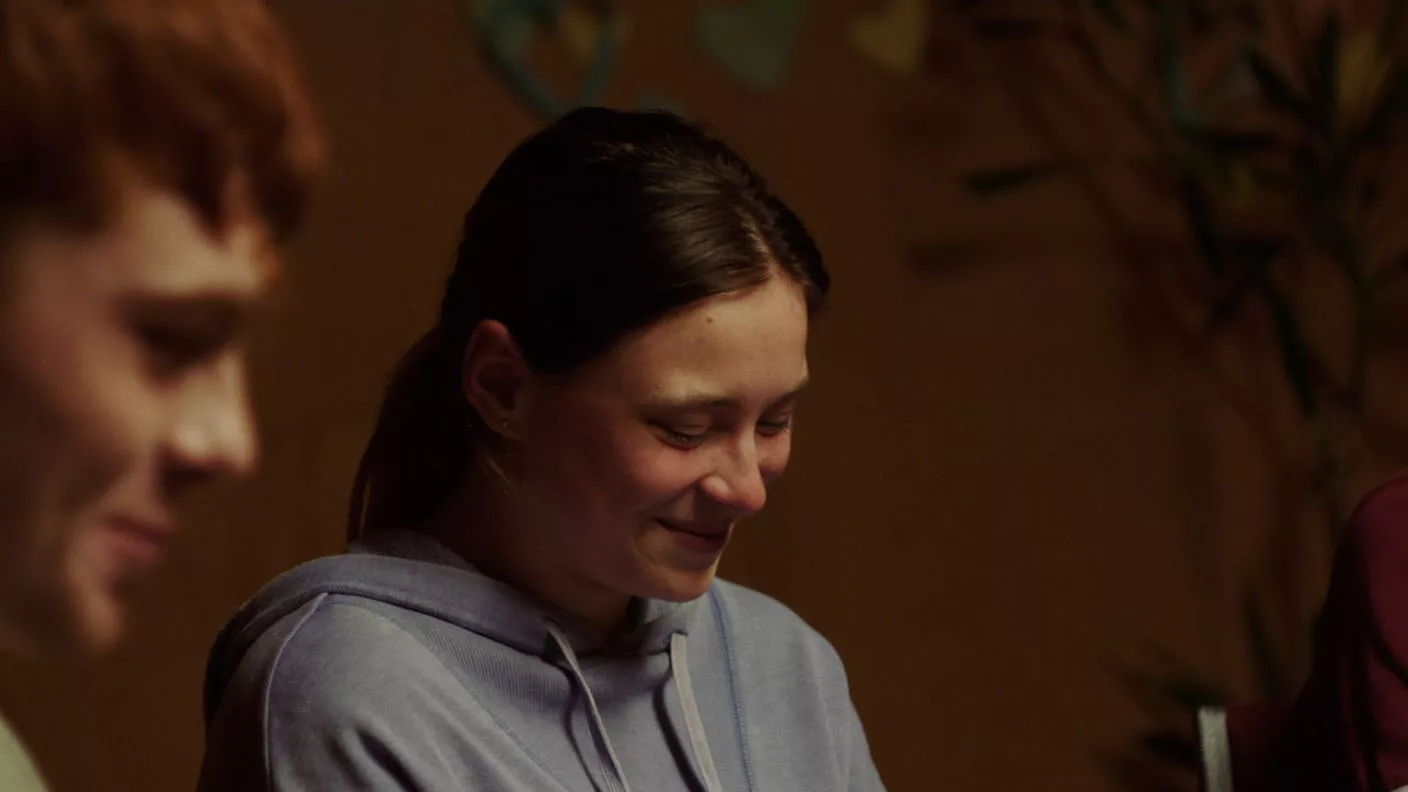
When you were researching, did you talk to a lot of students trying to overcome survivor's guilt?
Yeah, I did. That was something that came through in a really large way. So much of the film is built off the conversations I had with people who had experienced gun violence in their life and things that emerged more commonly in those conversations. Ultimately, I tried to compile my research into an amalgamation with these characters. That's certainly one theme that came about because of the many people that I spoke with. These characters are really young and survivor's guilt is a really complex thing to process.I'll say too, it's something that I experienced in my own life. In the group journey that I had, survivor's guilt is something that I personally was navigating at the time. I think that's why each of the characters, in some way, is dealing with that.
I think part of it is this idea that you have to continue going back to the school, to the site of the trauma, and you're constantly reminded of this experience that you had. How could you not feel this kind of gravity to just your ability to go on when someone that you love isn't able to show up there anymore? I think especially when it's grounded around this idea of graduation and this kind of entry into the next part of life, it felt like a really natural thing to bring into the characters.
I wanted to ask about the cell phone voice messages. I had a mentor who passed away years ago, and I have not gotten rid of my phone because my last text messages from him are still there, and I don't know what to do with that, right? This idea that someone can live on, you can hear them. The characters in the film can hear Tyler in his beautifully flippant teenage boy style voice message. When did you realize that was going to be a plot device to keep his spirit alive and to keep this connection with his friends?
I mean, you're not alone. I have that. So many people I spoke to have that. It's unique to this time in our lives that we're able to do that. It was immediately something I knew would be in the script because it's something that I experienced as well. There's this thing that has to happen in the story where there's always this presence of a person that you never see, and there's this history of violence that you never see. So the cell phone, the hallways, it was like looking for ways to really evoke the history of a person or a violence or an experience without actually showing it. I think that that was one really tangible way for each of the characters to show their connection to this person without ever really seeing Tyler's character in the film itself.
This is such a heavy film, but it's got such a sunny touch with the cinematography. How did you talk through the visual language with your DP Carolina Costa and what you wanted to evoke with the imagery?
Ultimately, this is a film that's focused on the survivors. It's about life and it's about the life that keeps moving on. I think the idea of honoring people who have passed by, recognizing their life is something that was a really big part of it. There was a conversation that Carolina and I had a lot about how we could capture this sort of fragility of life in a cinematic grammar. There's two different kinds of camera styles that we used throughout it. One is where she's actually operating, and you feel her touch, and there's almost a quiver to the camera. Then there's this more steadicam, more kind of like a ghostly presence. The two of those in conversation is really something that helped us accomplish this idea of both the fragility of life, but also this, how to evoke the history without actually showing it. Before I even put pen to paper, that was something I was after. How do we talk about this without actually showing the violence that happened? How do we just feel it? That's something that I think we tried to imbue in every single frame.
You worked on various independent film sets, including with Sean Baker and Chloé Zhao. Was there anything that you learned on those sets that you brought with you onto your own set?
Pretty much everything. That's how I came of age as a filmmaker. I think over time I learned to put in my own voice and not just take things out of the book. But there's so much around the process that I do that I fully learned from the both of them. One being the discovery of faces and really having this chemistry between people who are more seasoned actors and people who hadn't acted at all. Also, how to continually write the script and how to improvise behind the camera so that there is an aliveness and freshness on the screen. Those are things that are so important to my work, and what I hope to carry on from both of their filmmaking as well. I take what I learned from them very seriously, and I've always just wanted my work to be in conversation with theirs and filmmakers like them, where there is a more anthropological approach to a fiction film. Because I think that that texture of reality is something that, especially with the context of a film like this, feels really important to be able to authentically portray the story and to bring young people's voices to the screen. That's just of the utmost importance. I take that legacy really seriously.
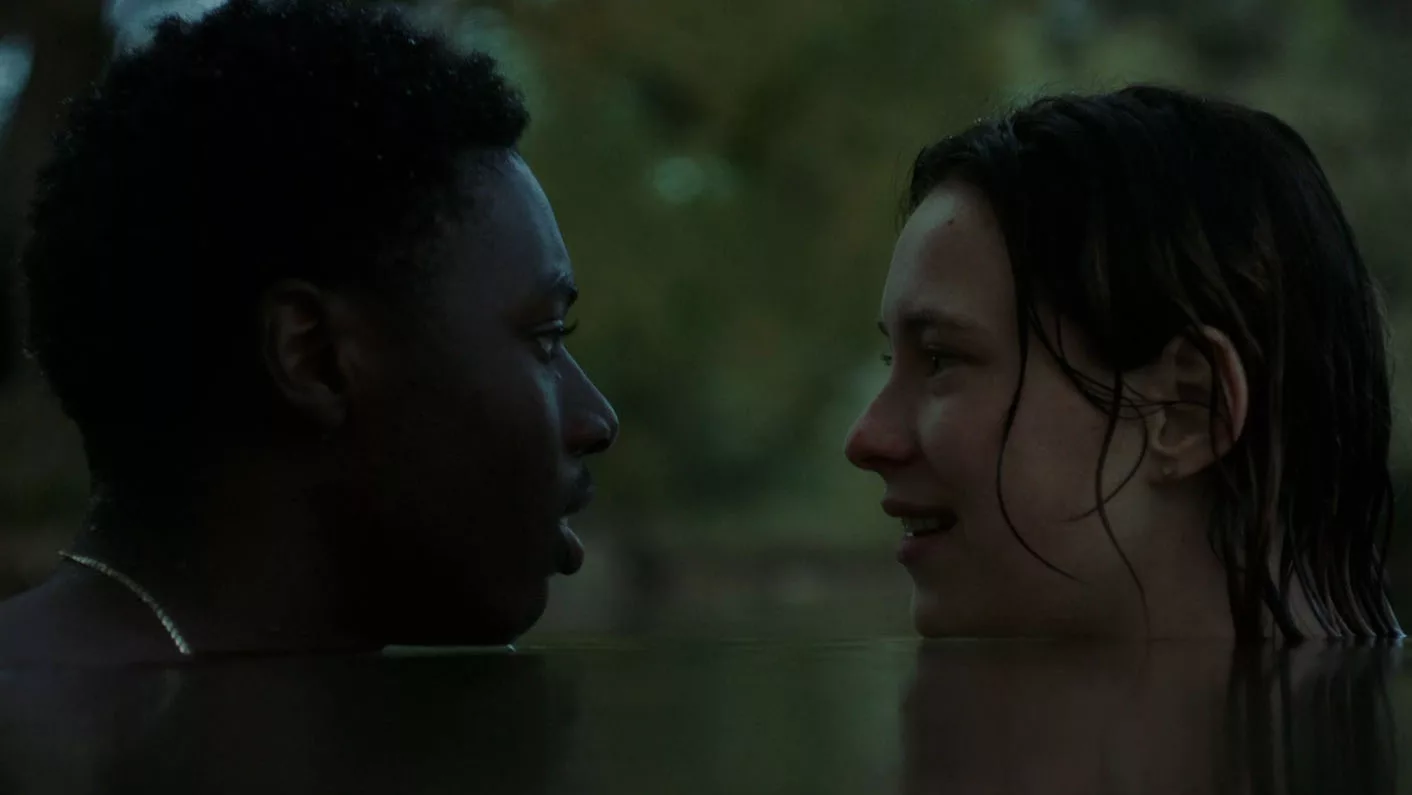
This is the first film distributed by Caryn Coleman's The Future of Film is Female. How did you first come into contact with Caryn?
I got a Future of Films is Female grant way back when for a short film I was doing which helped with the post-production sound. When you're inducted into the Future of Film is Female community, you're immediately on this email chain. That was actually in the early days of COVID. This email chain and this community of women and non-binary filmmakers that were a part of it became my community. We had a writer's group. We kept each other up. We rallied around each other. This was just a really important part of my life.
Caryn is someone who has always been supportive of my career from the beginning, and when "The Graduates" came to the Tribeca Film Festival, she helped to program it at MoMA. She really just got the film. I had spoken about whether there was a way to take a more bespoke, targeted audience approach to distributing this film so that we can actually find an audience for it in a bigger way. And she was always an advocate of this film. When I came back to her and asked about this distribution, this question was something that she had been thinking about for a long time. And I think that there's a part of this film that was right for the activation of this model because there is this impact lens to it. There's this very specific audience that we want to reach. I think taking a more film programming forward approach to the release of this film makes a lot of sense. So that's how that partnership came about.
How do you hope people will feel when they walk away from this film, or what do you hope they take away from the experience?
I certainly hope that people take hope from it. I think that this film does talk about something really heavy, and it talks about grief, and it talks about death, and it talks about this violence that happened, but the center of the film, ultimately, is about people connecting and about community and about moving forward. I really tried to capture that in each of the characters' journeys, especially at the end. I hope that people take away from this film this sense of hope, but also an ability to process their feelings outside of the more reactive news media cycle. Because everybody, unfortunately, has a touch point to the story, whether it's someone that they know or someone who knows someone that they know. I hope that it's a safe space for people to be able to have a conversation from both sides of the aisle, and that's always been an important intention of the film itself. And we left it with an open ended hopefulness.
You've spoken about Chloé Zhao, but are there any other women who have either inspired or whose films you think readers should check out?
I'm really inspired by my peers. Speaking of The Future of Film is Female, I think I'm always looking at people's first features. It is such an exciting way to really see an undiluted version of someone's voice. Some that come to mind that have been really inspiring to me in the last few years have been Laurel Parmet's "The Starling Girl" and Zia Anger's "My First Film," which just came out recently. There are so many. There's also people who have a long legacy, like Chloé. There's Eliza Hittman and Kelly Reichardt, who are my biggies in terms of American filmmakers. But I really do look to the next class of filmmakers coming up. There's so many women making work in American indie film right now and that is so exciting to me.
